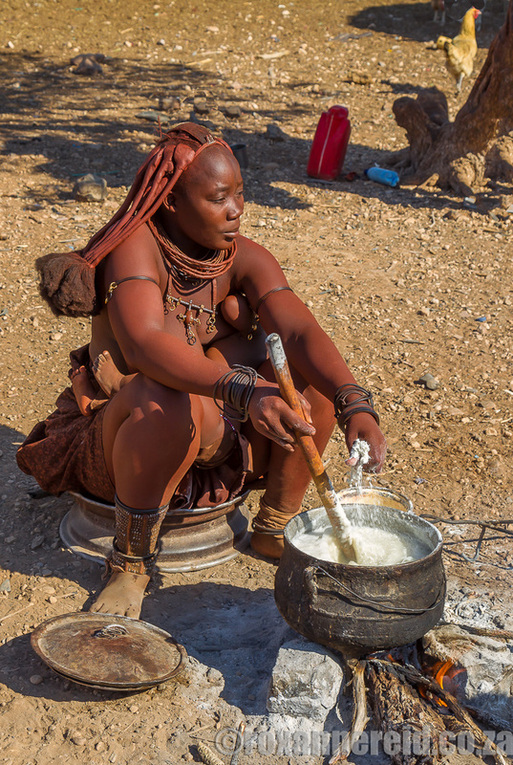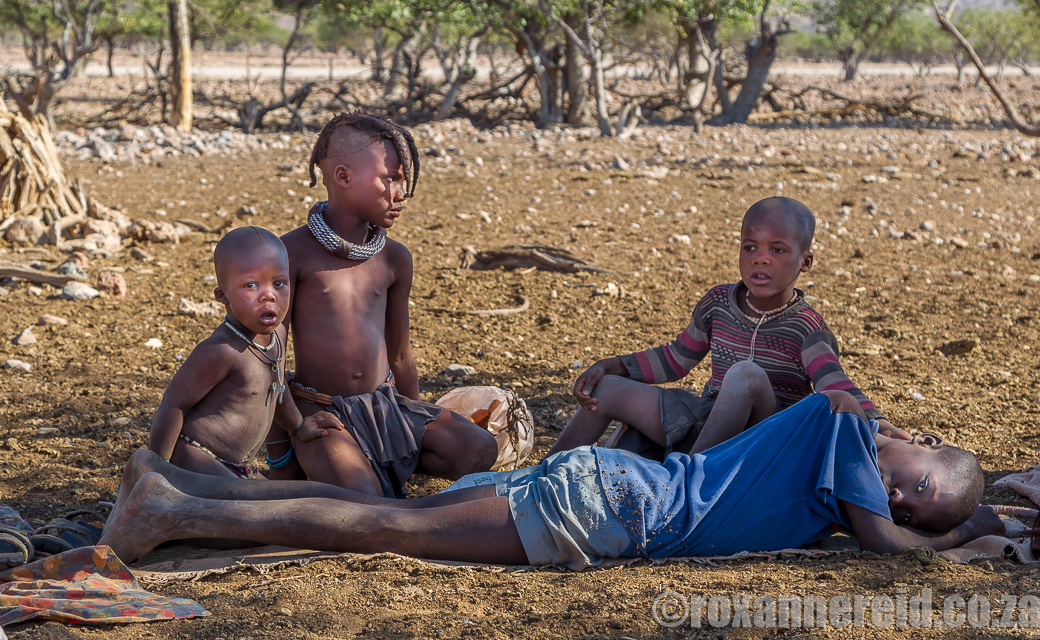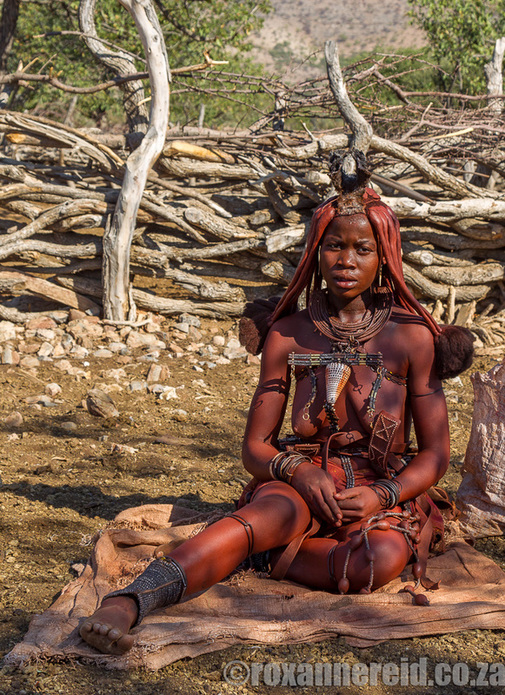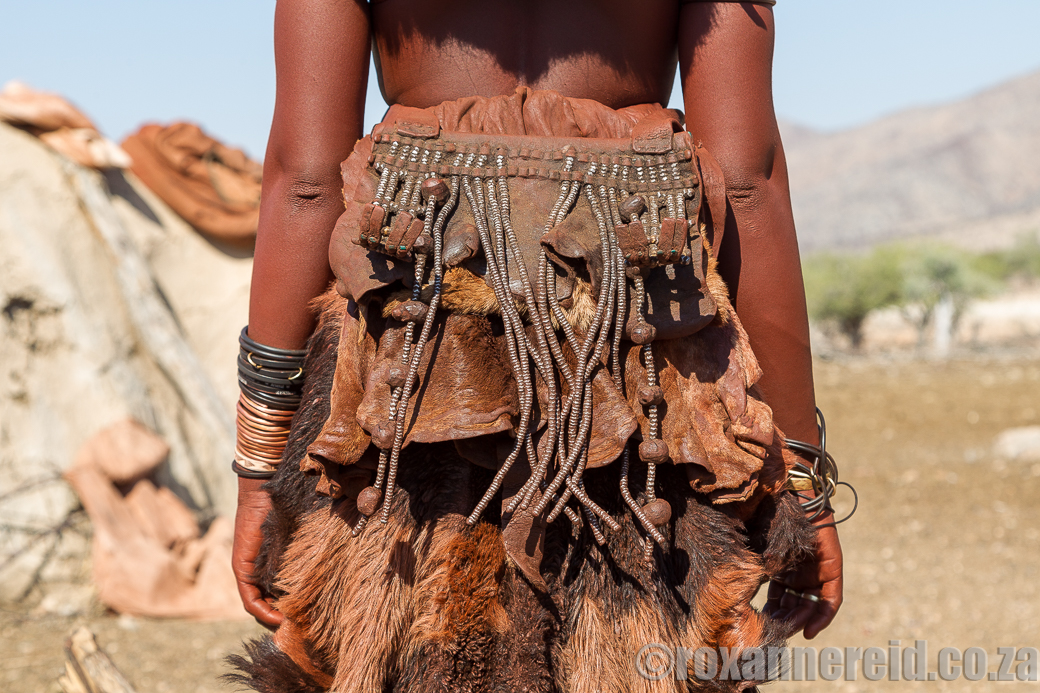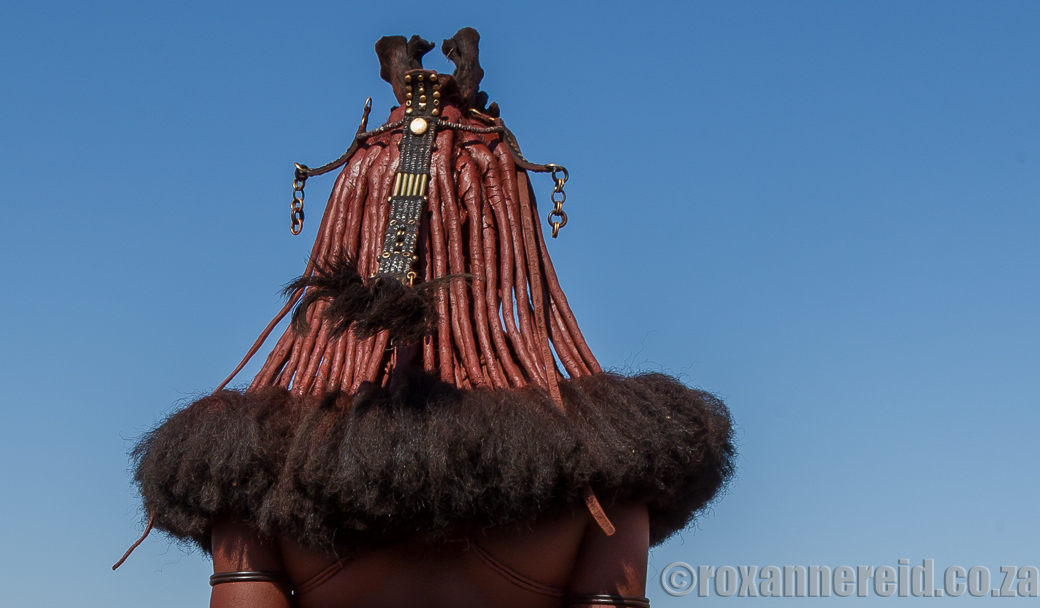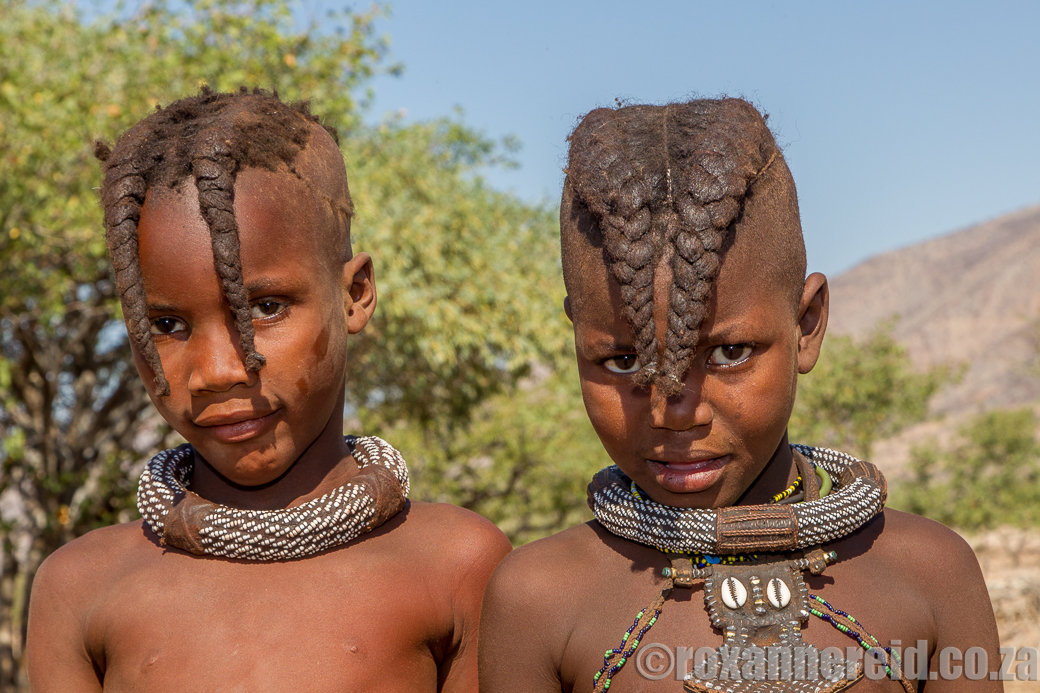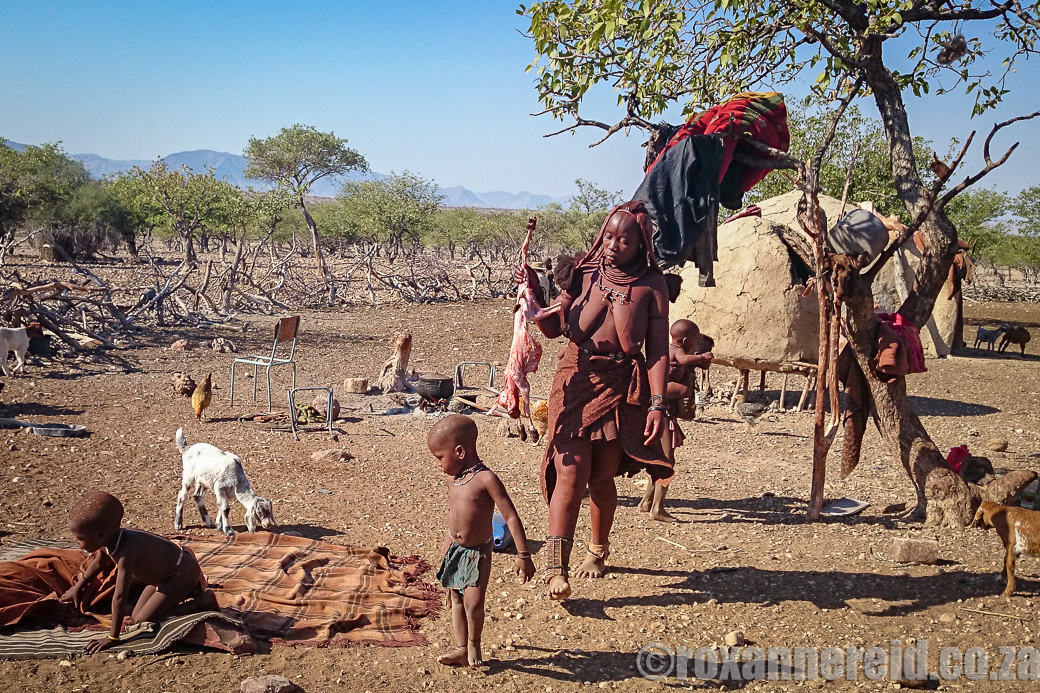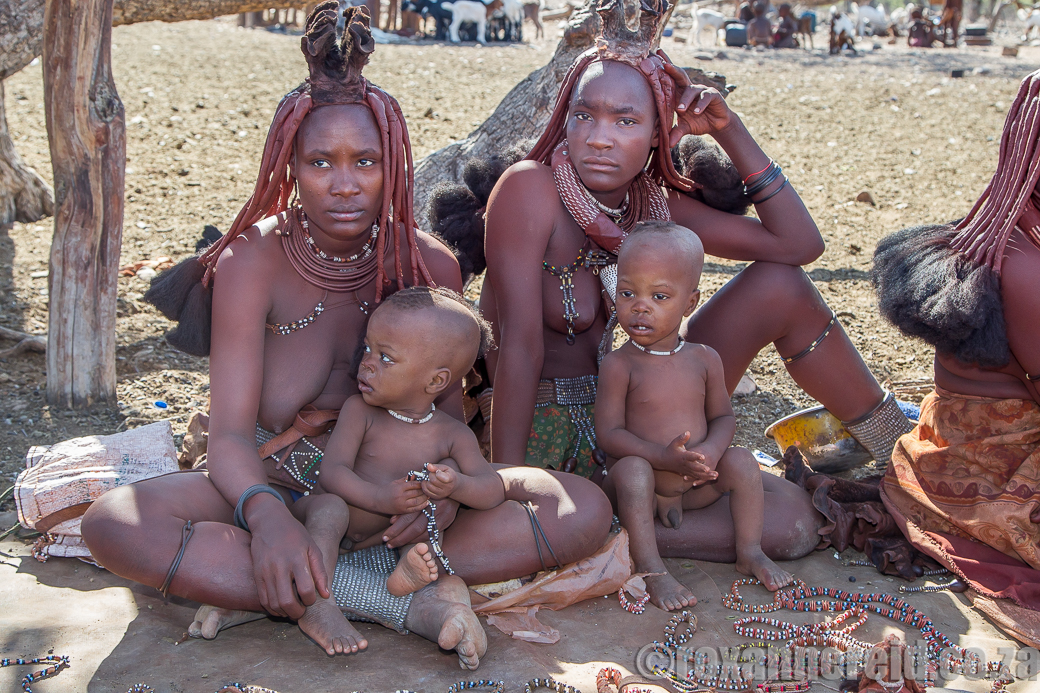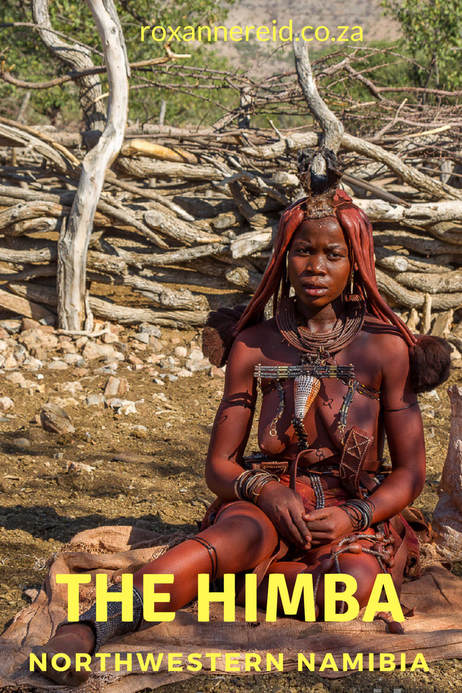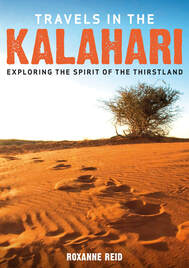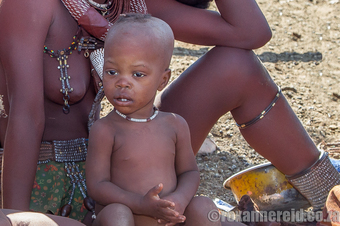
Skin of reddish hue, elaborate hair extensions, handmade skirts, and metal, shell and leather accessories, these are part of what makes Himba women so beautiful. There’s a grace and ease of movement too, making the Himba the supermodels of Kunene district in northwestern Namibia.
He explained that the word Himba means ‘left behind’ because when the Herero – the larger group the Himba are part of – started migrating south from the middle of the 18th century, the Himba stayed behind in the north of Namibia. (It’s a translation I much prefer to the alternative ‘beggar’ that I’ve seen elsewhere.) There they still live in what used to be called Kaokoland, now renamed Kunene.
Women do just about everything else – carry water, collect firewood, cook, look after the children, milk the cows and goats. After each rainy season they spread a covering of mud and cow dung on the huts, which are made of saplings bound together with palm leaves. They start having babies when they reach puberty and may have a dozen in their lifetime.
The traditional dress
Perhaps the most recognisable element of Himba women’s attire is the otjize of red ochre and fat they spread on their skin. Nowadays, we noticed, they often use Vaseline instead of butterfat from cows. They keep the ochre and perfume herbs and resins in small boxes made of cow horn and closed with cow-skin lids.
In a place of honour in every homestead is the family’s ancestral fire, which is used to communicate with their god Mukuru and their ancestors. It’s built between the first wife’s hut and the cattle kraal and a pregnant or menstruating woman isn’t allowed to walk between the fire and the kraal.
‘When a Himba person dies the body is taken to Opuwo to be put in cold storage until all the family can gather – usually three or four weeks,’ said Ueera. They slaughter 10 to 20 cows by strangling them to keep the blood in the meat. Once the family has gathered, the deceased’s body will spend the night in the village. It will be taken to the ancestral fire to tell the ancestors someone is coming to join them before going to the cemetery for burial.
‘When a headman dies, his brother can come to take over all his wealth and be boss of the village,’ Ueera said. ‘He can send the wives back to their own homes but the children must stay behind because they are blood family.’
Like it? Pin this image!
Highlights of Damaraland and Kaokoveld, Namibia
The scent of the Himba in Namibia
Copyright © Roxanne Reid - No words or photographs on this site may be used without permission from roxannereid.co.za
